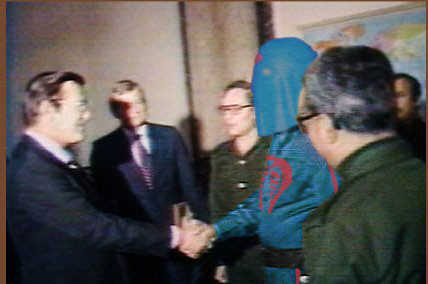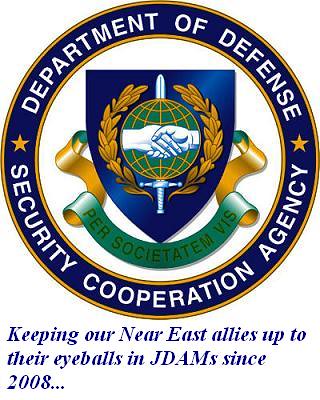I recently subscribed to the
Atlantic Monthly on the recommendation of a few friends.
I'm not a huge fan of the overly credulous reporting of Seymour Hersh, but [ed. I don't know why I mentioned this in the first place. Hersh writes for the New Yorker, not the Atlantic. Thanks Arnold] I am very attracted to the
Atlantic's lingering literary magazine feel. This month's issue featured an article available only to subscribers that I wanted to highlight. The
first piece is a profile on Israeli's recently appointed Minister of Strategic Affairs,
Avigdor Lieberman. Instead of attempting to characterize why Lieberman is such a controversial figure, I will let these excepts stand for themselves:
Yet the fears on which Lieberman focuses are domestic. Israel’s parliamentary system has created instability, he says, tapping a common anxiety after five governments in fewer than 11 years. His answer: revamping the system to give the prime minister nearly unchecked power. The country’s Arab minority is a fifth column, he argues. His answer: removing the minority from the state or from the voting rolls—to transform Israel from a Jewish state to a Jews-only state.
Lieberman’s ascent, say supporters (and some rivals), shows he has moved toward the center. It could just as easily be read as evidence that the center of Israeli politics has collapsed. Olmert and the centrist Kadima movement were casualties of the war in Lebanon last summer. To bolster support in parliament, the prime minister had to offer Lieberman influence over decisions that could shape, and shake, the Middle East. Simply by granting him a ministerial position, Olmert gave legitimacy to hard-line views on internal issues. In December, addressing a convention of his Yisrael Beitenu, Lieberman declared that his goal was “to be the ruling party” within two elections. When aristocracies fade, a pariah may reign.
Soon after Lieberman’s appointment to the cabinet, I met him in Jerusalem, in his cramped office in Israel’s parliament building. Lieberman dismisses the Israeli media as “superficial and cynical” for looking for electoral calculations in his decision to join the government. His only goal, he insists, is to protect the country from growing dangers, such as the risk of a new Holocaust at Iran’s hands. “Anyone who draws the lessons from Hitler’s rise [knows Hitler] was telling the truth, and Ahmadinejad is telling the truth,” he says, referring to the Iranian president’s threats against Israel. “All attempts to pacify Hitler ended in World War II, and all attempts to appease Ahmadinejad are doomed to failure.”
The same dark certainty underlies Lieberman’s view of Jews and Palestinians. “Every place in the world where there are two peoples—two religions, two languages—there is friction and conflict,” he asserts. That iron law, he says, pounding his desk, applies to Northern Ireland, Canada, and the Caucasus. The solution is total political division—and so, just as Palestinians seek a state that is “Judenrein,” Israel must be free of a disloyal Arab minority. Otherwise, he says, “linkage … will clearly exist between Israeli Arabs and the future Palestinian state,” and “the pressure from within and without will blow us apart.”
Instead of wading into the moral and political issues associated with the Israel/Palestine issue, I will just focus on the most controversial part of his views: The disenfranchisement of Arab Israeli citizens. I'm simply dumbstruck by Lieberman's position considering his background as an immigrant from the then Soviet Union. Does he not realize that he is essentially making the same arguments that led to his father's 10-year exile in Siberia and his family's poor treatment in Moldova? "Judaism/Islam is incompatible with our state, so we must treat them a second class citizens." Thankfully, the following exchange shows that Isreali politicians take his preposterous statements with a huge grain of salt:
Lieberman, though, had his own twist: He proposed that Israel keep its largest West Bank settlements—and cede some of its own territory near the West Bank boundary, areas populated by Arabs who are Israeli citizens and voters. Initially, he spoke of “transferring” Arab citizens from elsewhere in Israel to the new Palestinian state.
“I am definitely speaking of exchanging populations and territory simultaneously, because there is no other solution,” Lieberman said from the Knesset podium in June 2004. From the left-wing benches came constant, angry catcalls.
“You’re like Stalin, and your transfer is like Stalin’s!” shouted the Laborite Yuli Tamir.
Lieberman struggled to return to his prepared text, citing the division of Cyprus into Greek and Turkish sectors as a model. “In the last two decades,” he said, “populations have been transferred in Central Europe … for instance in the Balkans.”
The heckling grew.
“I suggest to the left that it go to a democratic country like Syria,” Lieberman said.
“You go! What chutzpah! Who are you at all?” answered another heckler, Avshalom Vilan. As a kibbutz member, Vilan is part of an Israeli gentry whose fortunes have faded like those of the antebellum plantation owners in Faulkner’s novels. His gibe suggested that Lieberman was beyond the pale socially as well as politically. On other occasions, facing Arab hecklers in the Knesset, Lieberman has caught fire as an orator, shouting and slamming the podium. This time he looked rattled.
Lieberman, though, has stopped speaking of “transfer.” Instead, his platform in last year’s election called for conditioning citizenship on a loyalty oath to the state, the flag, and the national anthem. The requirement would apply to “every person reaching adulthood,” Yisrael Beitenu’s director-general, Faina Kirshenbaum, stressed when I spoke with her. Israel’s flag, with its Jewish star, and its anthem describing the “Jewish soul stirring,” have long spurred opposition from Israeli Arabs. Under Lieberman’s plan, anyone declining the oath would remain a resident but could not vote. Just as his partition plan would draw a sharp geographic border between Jews and Arabs, his citizenship bill would draw a thick black border in Israeli society between those who belong to the polity and those who do not. The Arabs would be outside; the immigrants would be inside. “Such a law is customary in advanced Western countries, chief among them the United States of America,” the party platform claims. “I’d say we’re more a party of the center” than of the right, Kirshenbaum told me. “We’re pragmatic.”
Surprisingly, that view is accepted by Roman Bronfman, who for a decade was the most prominent politician on the dovish side of the Russian-speaking community. Originally from Ukraine, Bronfman came to Israel in 1980 and earned his doctorate in Russian history. After leaving the Knesset last year, he opened an investment firm. His office is on the 25th floor of a Tel Aviv high-rise and looks out over the country’s most Westernized city toward the Mediterranean. The magazines in the waiting room are all in Hebrew, not Russian; the coffee offered by the receptionist is espresso, the beverage of communion for the Israeli business class. The office proclaims that Bronfman belongs. Lieberman, says Bronfman, “understood that his right-wing stance made him—in Russian the word is izgoi—an outcast,” and has been trying to fit into the new political consensus that wants territorial division and peace. But “he’s a racist,” Bronfman adds. “He has accepted ending the conflict with Palestinians but has opened a front against the Israeli Arabs.”
Sure, the United States has a permanent residence system, but we don't block permanent residents from naturalizing based on their religion. In the ultimate demonstration of "where there is smoke, there is fire"-style irony, Lieberman has also advocated for a few measures that would give the Israeli prime minister emergency powers and diminish the Knesset's role in government:
The citizenship bill is just one piece of Lieberman’s plan for remaking Israel. Last year, his party submitted a bill it said would provide a more stable government. Under the proposed law, the prime minister could appoint ministers without parliamentary approval. If the Knesset approved a state of emergency, the cabinet could enact emergency regulations temporarily superseding laws—and if “the prime minister sees that the cabinet cannot be convened, and there is a pressing and vital need for emergency regulations, he may enact them.” That system, surely, could eliminate much parliamentary dithering.
I guess the notion of a Jewish state is more important to Liberman than the idea of Jewish democracy...




